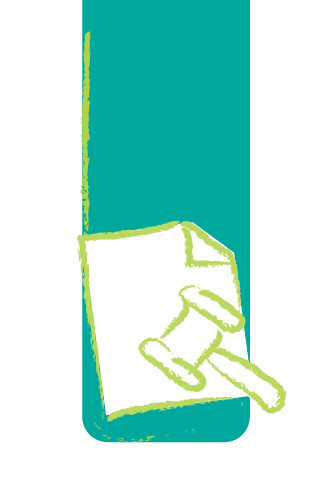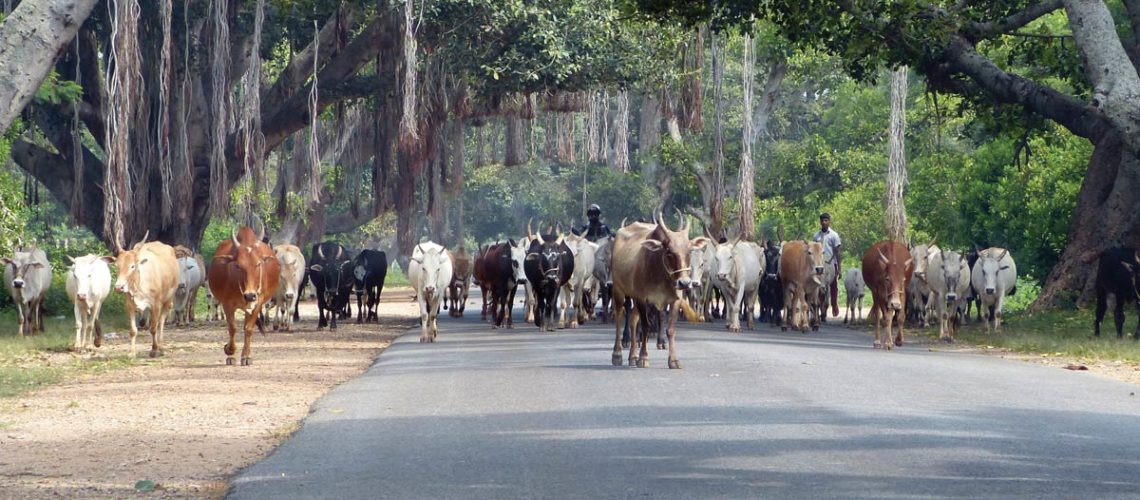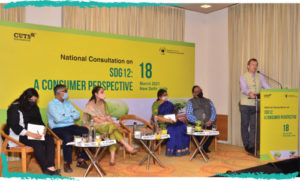
A contribution by CUTS
CUTS works to support consumers around the world, particularly the most vulnerable, to achieve rights related to basic needs, sustainable development and good governance. Headquartered in Jaipur, India with programme centres in Jaipur, Chittorgarh (Rajasthan), Kolkata (West Bengal) and an advocacy centre in New Delhi. It also has affiliated centres in Zambia, Kenya, Ghana, Vietnam, Geneva and Washington D.C.


Started as a rural development communication initiative in 1983, CUTS is now at the forefront of India and other countries’ consumer movements and is a leading Global South voice on issues of trade, regulation and governance. Our work focuses on bringing about consumer sovereignty in a framework of socioeconomic justice and environmental balance, both within and across borders.
Enabling sustainable consumption means understanding the interlinkages with and between production patterns and poverty. We work both at the policy advocacy level and at grassroots to understand and support the implementation of sustainable alternatives across a range of sectors from organic food production to waste recycling. To this end, we need to understand and identify obstacles within policy frameworks that shape production and consumption patterns.
We undertook an in-depth study to better understand India’s progress towards SDG 12. This is a critical goal because it is intricately linked with many of the other goals, and unsustainable production and consumption undermines any progress towards meeting the 2030 Agenda for Sustainable Development.
The study focused on the national scenario and drew on fieldwork undertaken in five states: Chhattisgarh, Himachal Pradesh, Kerala, Rajasthan and Uttar Pradesh. These states were selected as representative of different regions, and on their overall ranking in the 2018 SDG Index Report. We visited the targeted states to gather information about the status of SDG 12 and related indicators, the consumer perspective and best practices in this regard.

Dr. Rene Van Berkel, UNIDO Representative, Regional Office in India speaking at the national consultation organised by CUTS on “Sustainable Consumption and Production in India: A Consumer Perspective”, New Delhi, 18 March 2021
Key findings included that India is unlikely to achieve any of the SDG 12 targets and conditions related to the indicators may well worsen by 2030 due to COVID-19. As India has the second largest population in the world, it needs to play a leading role in driving attainment of the SDGs, particularly SDG 12. The study, however, also identified some of the obstacles to India making the contribution that it could to SDG 12.
These include lack of awareness and coordination and lack of data that all prohibit the sharing of achievements. Even among government officials, there is a significant lack of understanding of the SDGs, their purpose and related objectives and indicators. Government departments, such as urban development, and local bodies are responsible for implementing related policies but not SDG 12 specifically. And others, such as environment and planning, are only tasked with monitoring outcomes. There is no Interdepartmental coordination. This, coupled with a lack of funding and a shortage of technical staff, results in inadequate monitoring and reporting on the indicators. These appear to be the most significant challenges at the state level regarding SDG implementation.
This study enabled us to better understand sustainable consumption from the consumer perspective. It has given us an advocacy tool to call for the streamlining of policies and more dedicated support for sustainable practices. It has also led to the development of a replicable policy and practical model that can be used elsewhere.
We actively shared the study findings through a national consultation with representatives of government departments and relevant organisations. We continue to disseminate the study results to bring greater awareness to SDG 12 and will organise further consultations in the five states as the COVID-19 pandemic subsides.

CUTS concentrates on projects that provide an evidence base for its advocacy work on sustainable consumption. We have documented 15 traditional sustainable practices in different regions in India that potentially could be replicated at the urban level. This study identified three core areas related to sustainable practices and their potential to:
- alleviate poverty, support gender parity and promote democratic rights and equality for all;
- to generate business opportunities related to social entrepreneurship;
- meet modern demands in an innovative way, such as traditional air-cooling practices.

In the state of Chhattisgarh, there is an ancient tradition of keeping cows in ‘Gothan’ – a daycare cow shelter. All cows in a village are kept in the Gothan with one person paid a nominal fee by the animal owners to take care of them.
The state government is now supporting the Gothan model by paying the wages of the caretakers. The Gothan has become a part of the ‘Narva’, ‘Garwa’, ‘Ghurwa’ and ‘Badi Yojana’ (canal, cattle, manure pit and kitchen garden) scheme. This state-initiated scheme aims to revive the agricultural economy through collective action to conserve water, farm livestock, use compost and cultivate food.
In its first phase, 1 286 Gothans were built with 3 926 planned for the second phase; 1 996 have been completed to date. The plan is that every ‘Gram Panchayat’ (village council) builds a Gothan on three acres of land with pasture available for cows, goats and poultry. The resultant organic manure will be sold to farmers to promote organic farming.
The construction of the Gothan helps to connect farmers to income-orientated activities, like vegetable production, fisheries and livestock farming. It is hoped that this state intervention – the provision of wages to Gothan caretakers and purchasing of cow manure for processing into compost, dung lamps and fertilisers – will support the uptake of organic farming in the state. It also encourages women to start organic vegetable farming.
Successes to date include:
- About 60 000 participants in the scheme have earned incomes from producing vegetables and making vermicompost and cow dung lamps, among other products.
- Associated self-help groups have made more then 71 000 quintals (7 100 tons) of vermicompost from cow dung to date.
- Gothan committees have paid INR 80 crore (United States $10 million) to cattle farmers for their cow dung at INR 2 per kilogram.
If managed well, Gothans have significant potential to promote and support the adoption of organic farming, while also protecting the environment. The government is undertaking initiatives to encourage public participation in this scheme.
